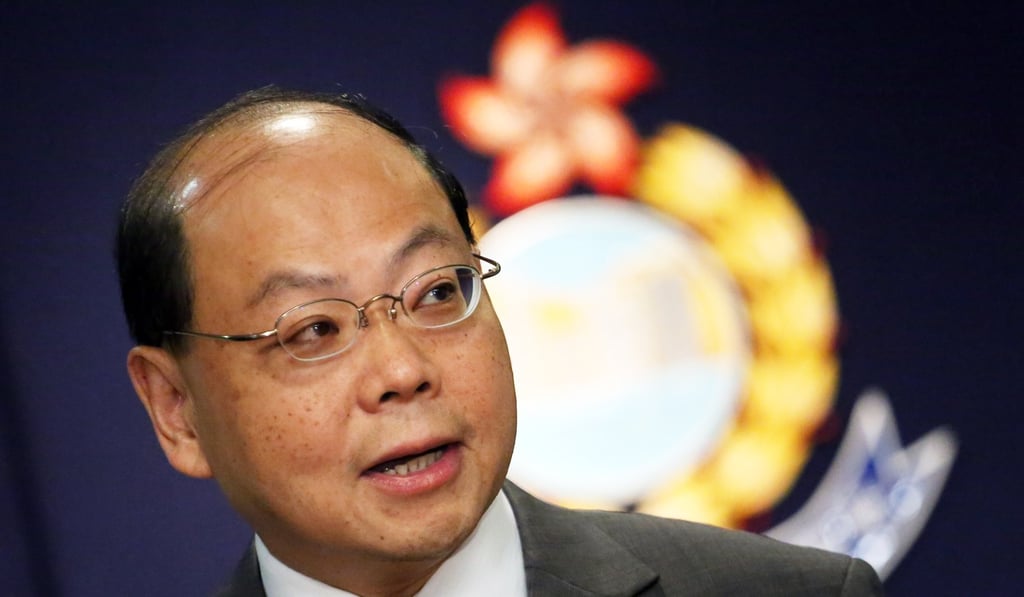Police siege aftermath: Hong Kong tense but calm as government officials dig in and anti-extradition bill protesters plan their next moves
- Police vow to pursue demonstrators for 15-hour siege of headquarters
- Protesters look for ways to keep public opinion on their side

Hong Kong police have vowed to pursue anti-government protesters for the 15-hour siege of their headquarters as demonstrators retreated to map out their next steps to keep public opinion on their side after a tense week in the city.
The only public gathering on Saturday was a small pro-police rally of 300 people in Central. The officers’ biggest defender in the aftermath of the unprecedented blockade that ruined the facade of the building and dealt a blow to police morale was their former chief, Andy Tsang Wai-hung.
He described the pitched battles as more severe than those during the Occupy demonstrations of 2014, when he was police commissioner. He dismissed any need for the police to apologise to the public.
The first government official to appear in public after the stand-off was Secretary for Justice Teresa Cheng Yeuk-wah. She attended the senior counsel appointment ceremony but refrained from commenting on the mayhem. She reiterated her apology for the government’s mishandling of the bill, which was meant to allow the transfer of fugitives between Hong Kong and places it lacked such an arrangement with, including the mainland, the singular focus of opposition.
